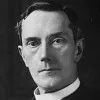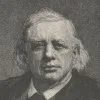ALCESTE: Some men I hate for being rogues; the others
I hate because they treat the rogues like brothers,
And, lacking a virtuous scorn for what is vile,
Receive the villain with a complaisant smile.
[Je hais tous les hommes:
Les uns, parce qu’ils sont méchants et malfaisants,
Et les autres, pour être aux méchants complaisants,
Et n’avoir pas pour eux ces haines vigoureuses
Que doit donner le vice aux âmes vertueuses.]Molière (1622-1673) French playwright, actor [stage name for Jean-Baptiste Poquelin]
Le Misanthrope, Act 1, sc. 1 (1666) [tr. Wilbur (1954)]
(Source)
(Source (French)). Alternate translations:I hate all men: some, because they are wicked and mischievous; others because they lend themselves to the wicked, and have not that healthy contempt with which vice ought to inspire all virtuous minds.
[tr. Van Laun (1878)]I hate all men -- some because they are wicked and mischievous, and others for being complaisant to -- the wicked, and not having that vigorous hatred for them which vice ought to excite in all virtuous minds.
[tr. Mathew (1890)]I hate all men: some because they are wicked and evil-doers; others because they fawn upon the wicked, and dare not show that vigorous hatred which virtuous souls should feel to vice.
[tr. Wormeley (1894)]I hate all men: some, because they are wicked and mischievous; others, because they are lenient towards the wicked, and have not that healthy contempt for them with which vice ought to inspire all honest souls.
[tr. Waller (1903)]I hate all men:
A part, because they’re wicked and do evil;
The rest, because they fawn upon the wicked,
And fail to feel for them that healthy hatred
Which vice should always rouse in virtuous hearts.
[tr. Page (1913)]I detest all men;
Some because they are wicked and do evil,
Others because they tolerate the wicked,
Refusing them the active, vigorous scorn
Which vice should stimulate in virtuous minds.
[tr. Bishop (1957)]I hate all men:
For some are wholly bad in thought and deed;
The others, seeing this, pay little heed;
For they are too indulgent and too nice
To share the hate that virtue has for vice.
[tr. Frame (1967)]
Quotations about:
misanthropy
Note not all quotations have been tagged, so Search may find additional quotes on this topic.
ALCESTE: Finding on every hand base flattery,
Injustice, fraud, self-interest, treachery …
Ah, it’s too much; mankind has grown so base,
I mean to break with the whole human race.[Je ne trouve partout que lâche flatterie,
Qu’injustice, intérêt, trahison, fourberie;
Je n’y puis plus tenir, j’enrage, et mon dessein
Est de rompre en visière à tout le genre humain.]Molière (1622-1673) French playwright, actor [stage name for Jean-Baptiste Poquelin]
Le Misanthrope, Act 1, sc. 1 (1666) [tr. Wilbur (1954)]
(Source)
(Source (French)). Alternate translations:Everywhere I find nothing but base flattery, in justice, self-interest, deceit, roguery. I cannot bear it any longer; I am furious; and my intention is to break with all mankind.
[tr. Van Laun (1878)]I find nothing anywhere but base flattery, injustice, interest, treachery, and knavery. I can contain myself no longer; I am. in a rage, and my purpose is to break off all intercourse with all mankind.
[tr. Mathew (1890)]Everywhere I find base flattery, injustice, self-interest, treachery, deceit. I cannot bear it any longer; I am enraged; and my intention is to tell the truth, henceforth, to all the human race.
[tr. Wormeley (1894)]Nothing is to be seen anywhere but base flattery, injustice, self-interest, deceit, roguery. I cannot bear it any longer: I am furious: and it is my intention to break a lance with all mankind.
[tr. Waller (1903)]There's nowhere aught but dastard flattery,
Injustice, treachery, selfishness, deceit;
I can't endure it, I go mad -- and mean
Squarely to break with all the human race.
[tr. Page (1913)]All I see everywhere is flattery,
Injustice, treason, selfishness, deceit.
It makes me furious; I cannot stand it;
I will defy the entire human race.
[tr. Bishop (1957)]Cowardly flattery is all I see,
Injustice, selfishness, fraud, treachery;
I've had my fill; it makes me mad; I plan
To clash head-on with the whole race of man.
[tr. Frame (1967)]
A democracy is a means whereby we channel our contempt for our fellow man into a lively scorn for those elected to represent him.
Stephen Fry (b. 1957) British actor, writer, comedian
“Trefusis on Any Questions,” Loose Ends, BBC Radio 4 (c. 1987)
(Source)
Reprinted in Paperweight (1992)
There are few people whom I really love, and still fewer of whom I think well. The more I see of the world, the more am I dissatisfied with it; and every day confirms my belief of the inconsistency of all human characters, and of the little dependence that can be placed on the appearance of merit or sense.
Civilization is the progress toward a society of privacy. The savage’s whole existence is public, ruled by the laws of his tribe. Civilization is the process of setting man free from men.
Ayn Rand (1905-1982) Russian-American writer, philosopher
The Fountainhead, ch. 18 [Roark] (1943)
(Source)
I don’t hate people, I just feel better when they aren’t around.
Charles Bukowski (1920-1994) German-American author, poet
Barfly (1987)
(Source)
From the movie screenplay by Bukowski.
This is the way the phrase is usually quoted, but it's actually a series of lines when Henry (a character standing in for Bukowski himself) first meets Wanda.WANDA: I can't stand people. I hate them.
HENRY: Yeah?
WANDA: You hate them?
HENRY: No, but I seem to feel better when they're not around.
Bukowski is actually in the scene as the barfly closest to Wanda before Henry moves next to her. Video clip.
It is just as foolish to complain that people are selfish and treacherous as it is to complain that the magnetic field does not increase unless the electric field has a curl. Both are laws of nature.
John von Neumann (1903-1957) Hungarian-American mathematician, physicist, inventor, polymath [János "Johann" Lajos Neumann]
(Attributed)
(Source)
More in Eugene Wigner, "John von Neumann (1903-1957)," Yearbook of the American Philosophical Society (1958); later collected in Wigner's Symmetries and Reflections.
To believe that man’s aggressiveness or territoriality is in the nature of the beast is to mistake some men for all men, contemporary society for all possible societies, and, by a remarkable transformation, to justify what is as what needs must be; social repression becomes a response to, rather than a cause of, human violence.
Leon Eisenberg (1922-2009) American psychiatrist and medical educator
“The Human Nature of Human Nature,” Science (14 Apr 1972)
(Source)
Based on an address at Faculty of Medicine Day, McGill University Sesquicentennial Celebration, Montreal, Canada (1 Oct 1971).
Man is a social animal who dislikes his fellow man.
[L’homme es un animal sociable qui déteste ses semblables.]
Eugène Delacroix (1799-1863) French painter [Ferdinand Victor Eugène Delacroix]
The Journal of Eugène Delacroix, 17 November 1852 (1951)
(Source)
That sort of thing wears thin — for when one’s cynicism becomes perfect and absolute, there’s no longer anything amusing in the stupidity and hypocrisy of the herd. It is all to be expected — what else could human nature produce? — so irony annuls itself by means of its own victories!
The cynic is one who never sees a good quality in a man, and never fails to see a bad one. He is the human owl, vigilant in darkness, and blind to light, mousing for vermin, and never seeing noble game.
A psychologist once asked a group of college students to jot down, in thirty seconds, the initials of the people they disliked. Some of the students taking the test could think of only one person. Others listed as many as fourteen. The interesting fact that came out of this bit of research was this: Those who disliked the largest number were themselves the most widely disliked. When we find ourselves continually disliking others, we ought to bring ourselves up short and ask ourselves the question: “What is wrong with me?”
It is a sin to believe evil of others, but it is seldom a mistake.
H. L. Mencken (1880-1956) American writer and journalist [Henry Lewis Mencken]
A Little Book in C Major, ch. 5, § 23 (1916)
(Source)
Variants:EVIL. That which one believes of others. It is a sin to believe evil of others, but it is seldom a mistake.
A Book of Burlesques, "The Jazz Webster" (1924)Evil is that which one believes of others. It is a sin to believe evil of others, but it is seldom a mistake.
Chrestomathy, ch. 30 "Sententiae" (1949)



















